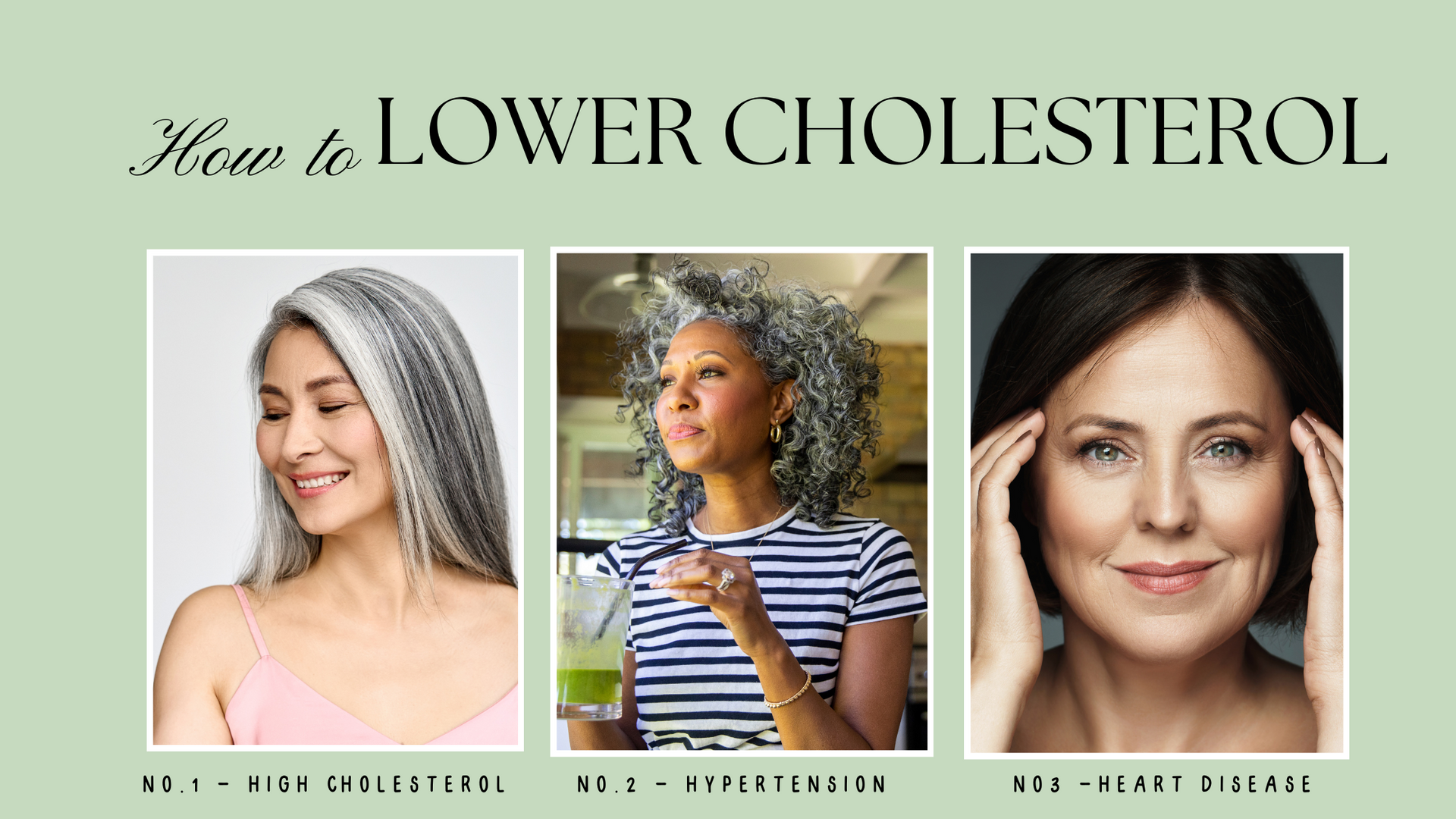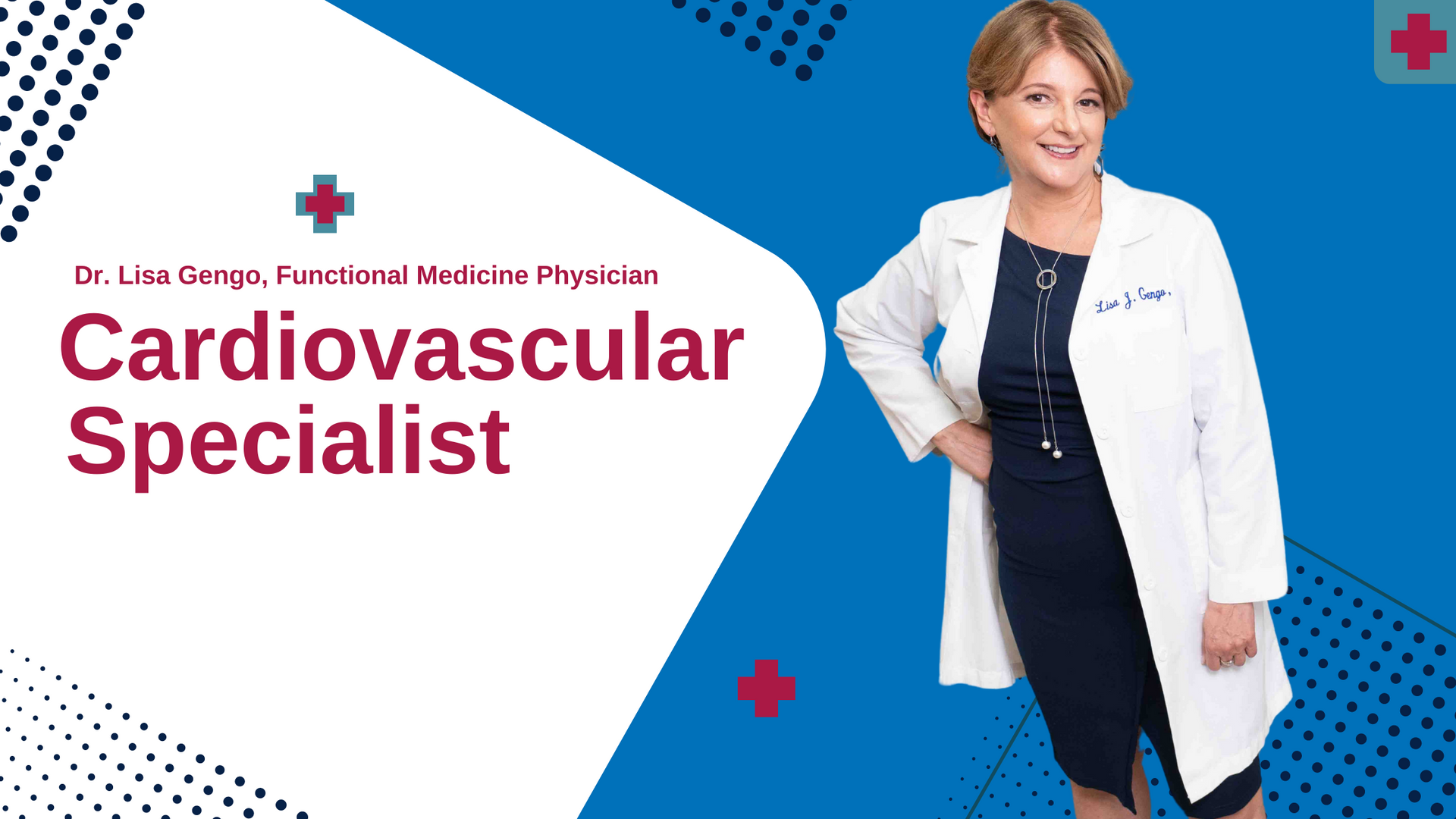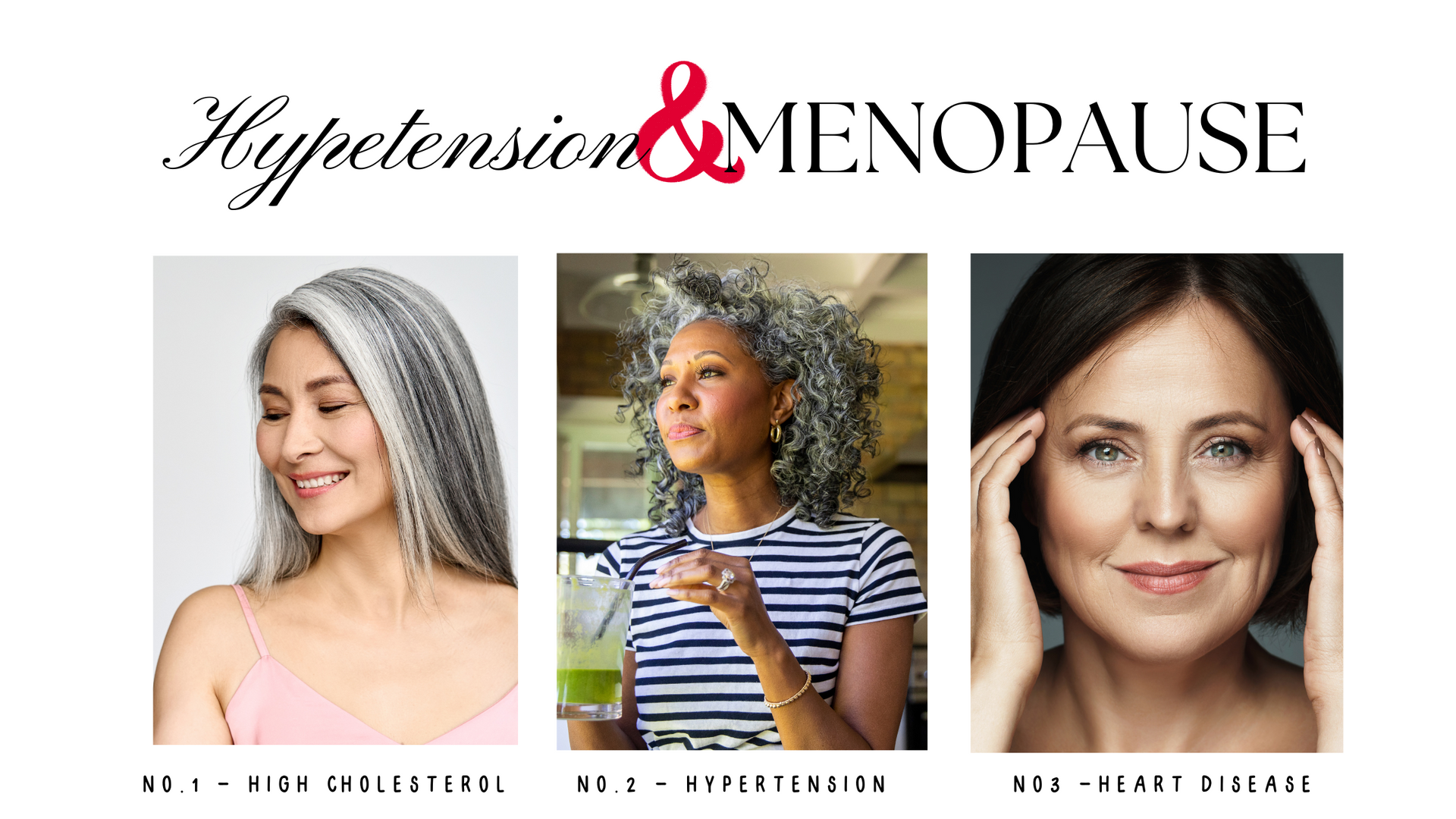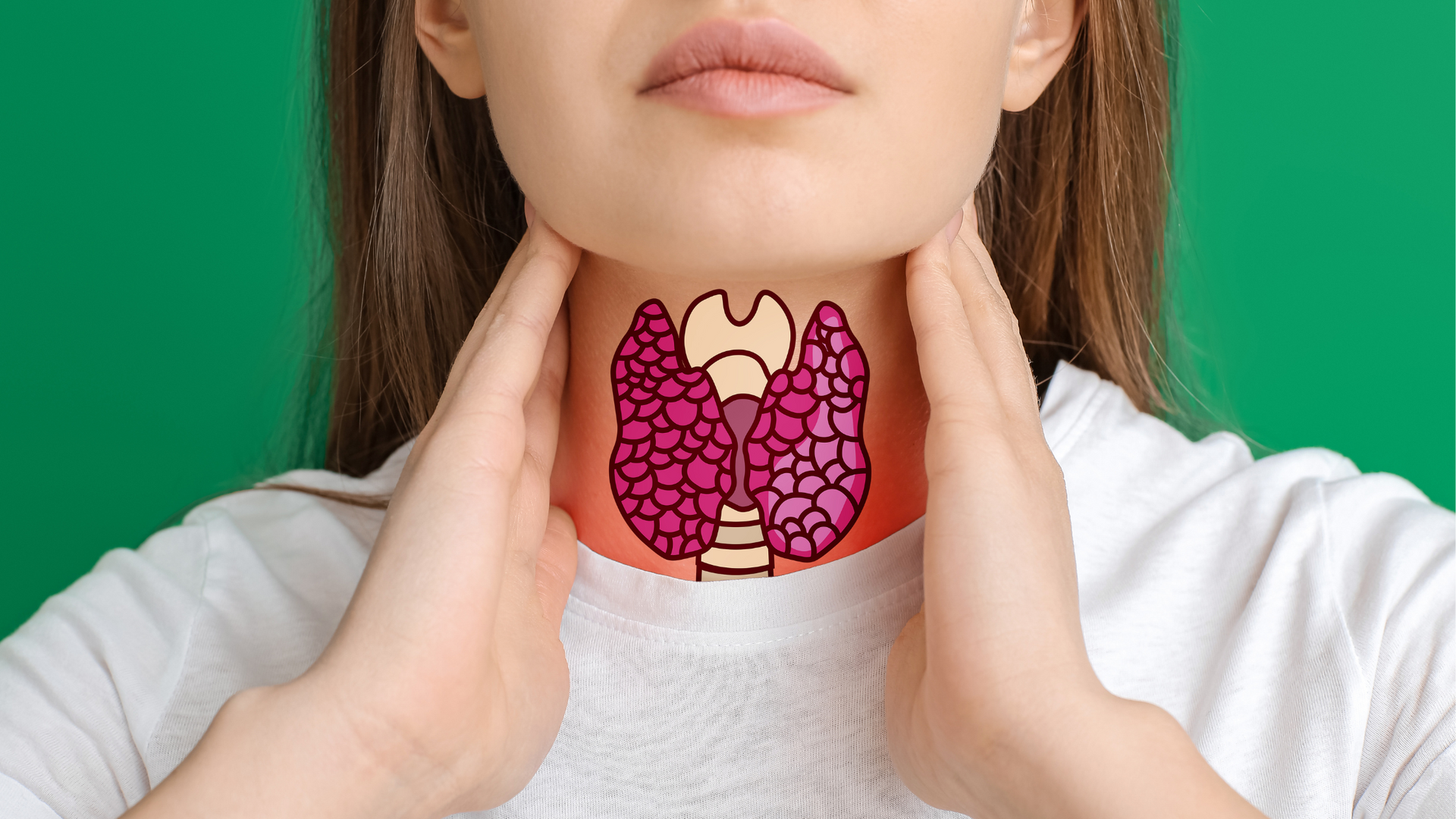How to Lower Cholesterol: A Functional Medicine Approach

So, let's talk about cholesterol—a topic that often gets a bad rap. As someone who's passionate about helping friends like you optimize heart health and nutrition, I want to shed some light on the ins and outs of managing and knowing how to lower cholesterol
in a way that goes beyond the usual advice you might hear.
First things first, let's demystify cholesterol. It's not the villain it's made out to be. In fact, cholesterol plays essential roles in our bodies, like forming cell membranes, making hormones, and producing vitamin D. But when levels get out of whack—especially with too much LDL (the "bad" cholesterol)
and too little HDL (the "good" cholesterol)—it can spell trouble for our hearts.
How to lower cholesterol with food and the Gut Connection
Now, onto the food front. While many focus solely on cutting out cholesterol from their diets, there's a whole lot more to it. I'm a big advocate for a plant-heavy diet packed with fiber, healthy fats (think omega-3s from goodies like flaxseeds and walnuts),
and antioxidant-rich foods. We can give our cholesterol levels a positive nudge in the right direction by loading up on these wholesome goodies and steering clear of processed stuff.
But here's something you might not have heard much about—the gut-cholesterol connection. Yep, your gut health can actually play a significant role in how your body handles cholesterol. Research shows that an imbalance in gut bacteria can lead to more cholesterol absorption and inflammation. So, it's all about keeping your gut happy with things like probiotics, prebiotics, and fiber-rich foods.
How stress affects how to lower cholesterol
Now, let's chat about stress—because it's not just bad for your mood; it can wreak havoc on your heart, too. Stress messes with everything from inflammation to how your body handles lipids (aka fats, including cholesterol).
That's why I'm a big fan of stress-busting techniques like mindfulness, meditation, and deep breathing exercises. They're not just good for chilling out—they can help balance your hormones and nervous system, which in turn can positively impact your cholesterol levels.
Of course, we can't talk about heart health without mentioning exercise. It's like medicine for your cholesterol levels.
Regular physical activity burns calories and boosts HDL cholesterol (the good cholesterol), helps with weight management, and improves how your body uses insulin—all super important for keeping your cholesterol in check. Whether you're into intense workouts or prefer something more zen-like yoga, finding what works for you is key.
Adding Supplements to lower cholesterol
Now, onto supplements. While eating a nutrient-packed diet is priority number one, certain supplements can lend a helping hand. Things like plant sterols, soluble fiber (hello, psyllium husk), and red yeast rice extract
have been shown to help lower cholesterol. Just remember, it's best to chat with a healthcare pro or a functional medicine specialist before adding anything new to your routine.
Lastly, let's talk about personalized care. Because when it comes to managing cholesterol, there's no one-size-fits-all approach. We're all unique, and what works for one person might not work for another. That's where personalized medicine comes in. By digging deep with tools like advanced lipid profiling and genetic testing, we can tailor a plan that's just right for you—addressing the root causes and getting your cholesterol levels on track in a way that's as unique as you are.
So, there you have it—a holistic approach to lowering cholesterol that goes beyond the basics of just taking medication. By tapping into the power of nutrition, gut health, stress management, exercise, supplements, and personalized care, we can pave the way to a healthier heart and a brighter future. You've got this!
Curious to Learn More? Check out our blog post on Hashimoto's Disease: Recognizing the Sneaky Symptoms.
Dr. Lisa Gengo specializes in tackling the fundamental triggers of gut disorders and heart health challenges like hypertension, weight resistance, and thyroid issues and provides expert nutritional guidance. These issues often play pivotal roles in the development of weight gain, sleep disorders, and a range of intricate medical concerns. Explore further by clicking here to learn more about her expertise and approach to holistic well-being—Dr. Lisa Gengo's Functional Medicine Practice.

By Dr. Lisa Gengo, Interviewed by Felicia Roberts, PA-C
•
26 Apr, 2024
Welcome back, dear readers, to another insightful journey into a vital aspect of women's health: recognizing heart attack symptoms in women. Today, we delve deeper into a crucial aspect often overlooked: subtle yet vital signs of a heart attack in women. And who better to guide us through this intricate landscape than Dr. Lisa Gengo, ND, PA, a distinguished Cardiovascular Specialist and Functional Medicine Physician. Dr. Gengo's journey into the field of cardiovascular health is as remarkable as it is inspiring. Having worked as a Cardiovascular Surgery Physician Assistant, she witnessed firsthand the profound impact of heart disease on individuals' lives, particularly women . It is this experience, seeing the end results where surgical intervention became necessary, that fueled her determination to explore preventive measures and natural interventions to halt heart damage before it reaches such critical stages. Heart attack symptoms in women may not always conform to the classic Hollywood portrayal of chest-clutching pain. Instead, they often manifest in subtler ways, making early detection challenging yet imperative. Dr. Gengo emphasizes the importance of being vigilant and attuned to these signs, as they could mean the difference between life and death. Here are ten invaluable tips, beyond the conventional advice of diet and exercise, to safeguard women's heart health and prevent heart attack symptoms in women: 1. Harmonizing Hormones: Hormonal fluctuations, especially during menopause, can significantly influence cardiovascular health. Estrogen, known for its protective effects on the heart, declines during menopause, potentially increasing the risk of heart disease. Dr. Gengo emphasizes the importance of hormonal balance through personalized hormone therapy, aiming to mitigate these risks and support heart health. 2. Silencing the Snore: Sleep apnea, often characterized by snoring and interrupted breathing during sleep, is not merely a nuisance but a silent saboteur of heart health. Studies suggest a strong association between sleep apnea and cardiovascular diseases, including hypertension and coronary artery disease. Dr. Gengo advocates for early detection and treatment of sleep apnea, emphasizing the profound impact of quality sleep on overall cardiovascular well-being. 3. Pearly Whites, Healthy Heart: Surprisingly, your dental health may hold the key to a healthier heart. Research indicates a correlation between periodontal (gum) disease and an increased risk of heart disease. The inflammation triggered by gum disease may exacerbate existing cardiovascular conditions or contribute to their development. Thus, maintaining good oral hygiene and regular dental check-ups is not just about a winning smile but also about nurturing a healthy heart. 4 . Embracing Mindfulness: Stress, often dubbed the silent killer, significantly affects cardiovascular health. Chronic stress can elevate blood pressure, trigger inflammation, and disrupt heart rhythm, paving the way for heart disease. Dr. Gengo advocates for mindfulness practices, such as meditation, yoga, or deep breathing exercises, as potent tools to manage stress and promote heart health. 5. Nourishing Gut Health: The gut-heart connection is a burgeoning field of research with profound implications for cardiovascular health. Emerging evidence suggests that gut dysbiosis (imbalance in gut microbiota) may contribute to inflammation and metabolic disturbances, predisposing individuals to heart disease. Dr. Gengo emphasizes the importance of a diverse, fiber-rich diet, supplemented with probiotics and prebiotics, to nurture a thriving gut ecosystem and support cardiovascular wellness. 6. Listen to Your Body: Understanding heart attack symptoms in women begins with listening to your body's signals. While chest pain is a common indicator, women may experience a range of symptoms, including shortness of breath, nausea, dizziness, and severe fatigue. Dr. Gengo urges women not to dismiss these signs and to seek medical attention promptly. 7. Know the Warning Signs: Familiarizing oneself with the warning signs of a heart attack is paramount. "Heart attack symptoms in women" encompass a spectrum of sensations, from discomfort in the chest to pain in the jaw, neck, back, or arms. By recognizing these signals early on, women can take proactive steps to protect their heart health. 8. Break the Stereotype: Despite pervasive misconceptions, heart attacks are not exclusive to older men. Women of all ages are susceptible, and their symptoms may differ from those typically associated with men. Dr. Gengo emphasizes the need to dispel stereotypes and raise awareness about the diverse presentation of heart attack symptoms in women. 9. Seek Prompt Medical Attention: Time is of the essence when it comes to heart attacks. Delaying treatment can lead to irreversible damage to the heart muscle or even death. Dr. Gengo underscores the importance of seeking prompt medical attention at the first sign of "heart attack symptoms in women," as every minute counts in saving lives. If in doubt, still get yourself checked out. 10. Embrace Prevention: While awareness is crucial, prevention remains the cornerstone of heart health. Dr. Gengo emphasizes the importance of adopting a heart-healthy lifestyle, including regular exercise, a balanced diet, stress management, and regular check-ups. By prioritizing prevention, women can reduce their risk of experiencing "heart attack symptoms in women" and lead healthier lives. In conclusion, understanding and recognizing "heart attack symptoms in women" is not only a matter of health but also a matter of life-saving importance. With Dr. Lisa Gengo's guidance and advocacy, let us empower ourselves and our communities to listen to our bodies, know the warning signs, and take proactive steps to safeguard our hearts. Curious to Learn More? Check out our blog post on Take Back Your Health with Functional Medicine. Dr. Lisa Gengo, a "health detective," excels in unraveling the underlying triggers of heart health challenges such as hypertension (cardiovascular health), gut disorders, thyroid disorders, and weight resistance. Her expert nutritional guidance is instrumental in addressing these concerns, which often play critical roles in conditions like weight gain, sleep disorders, and a spectrum of intricate medical issues. Click here to learn more about Dr. Gengo's holistic approach and specialized expertise. — Dr. Lisa Gengo's Functional Medicine Practice.

By Dr. Lisa Gengo
•
12 Dec, 2023
In this delightful blog post, written by a medical functional medicine specialist, you'll discover a gluten-free and dairy-free sugar cookie recipe that's delicious and designed to keep your energy levels stable and your mood soaring. Learn the secret to slowing down the dreaded sugar spike.

By Dr. Lisa Gengo
•
21 Nov, 2023
Raise your glass for the holidays while safeguarding your health! Dr. Gengo shares expert advice on enjoying alcoholic drinks responsibly during festive occasions, ensuring a safe and merry celebration. Learn about blood sugar balance, alcohol poisoning prevention, withdrawal awareness, and the path to a healthier holiday season.
We love to help people restore their health and vitality, and we’d love to meet you. Book a free Discovery Consult and learn more about our services and focus areas. We'll let you know how we can help you start on your path toward a healthier, more vibrant you!
FOCUS AREAS
- Cardiovascular
- Gut-Autoimmune
- Autoimmune Dysfunction
- Anti-Aging
- Digestive Dysfunction
- Weight Loss
- Chronic Fatigue
- Hormonal Imbalances
- Adrenal Dysfunction
- Insomnia
- Blood Sugar/Diabetes
- Preventive Health Care
- Cognitive Health
- Thyroid Disorders
- Chronic Disorders
- Hashimotos
- Allergies
- Food Sensitivities
- Inflammation
- Complex Medical Issues
- Metabolic Syndrome
- Nutritional Deficiencies
cONTACT iNFORMATION
Phone:
Email:
fullcirclemd@gmail.com
Address:
111 High Ridge Road
Stamford, CT 06905
Located on the First Floor
© 2024
All Rights Reserved | Dr. Lisa Gengo | Website, Branding & Video Production by The BRANDPRENUER Agency







